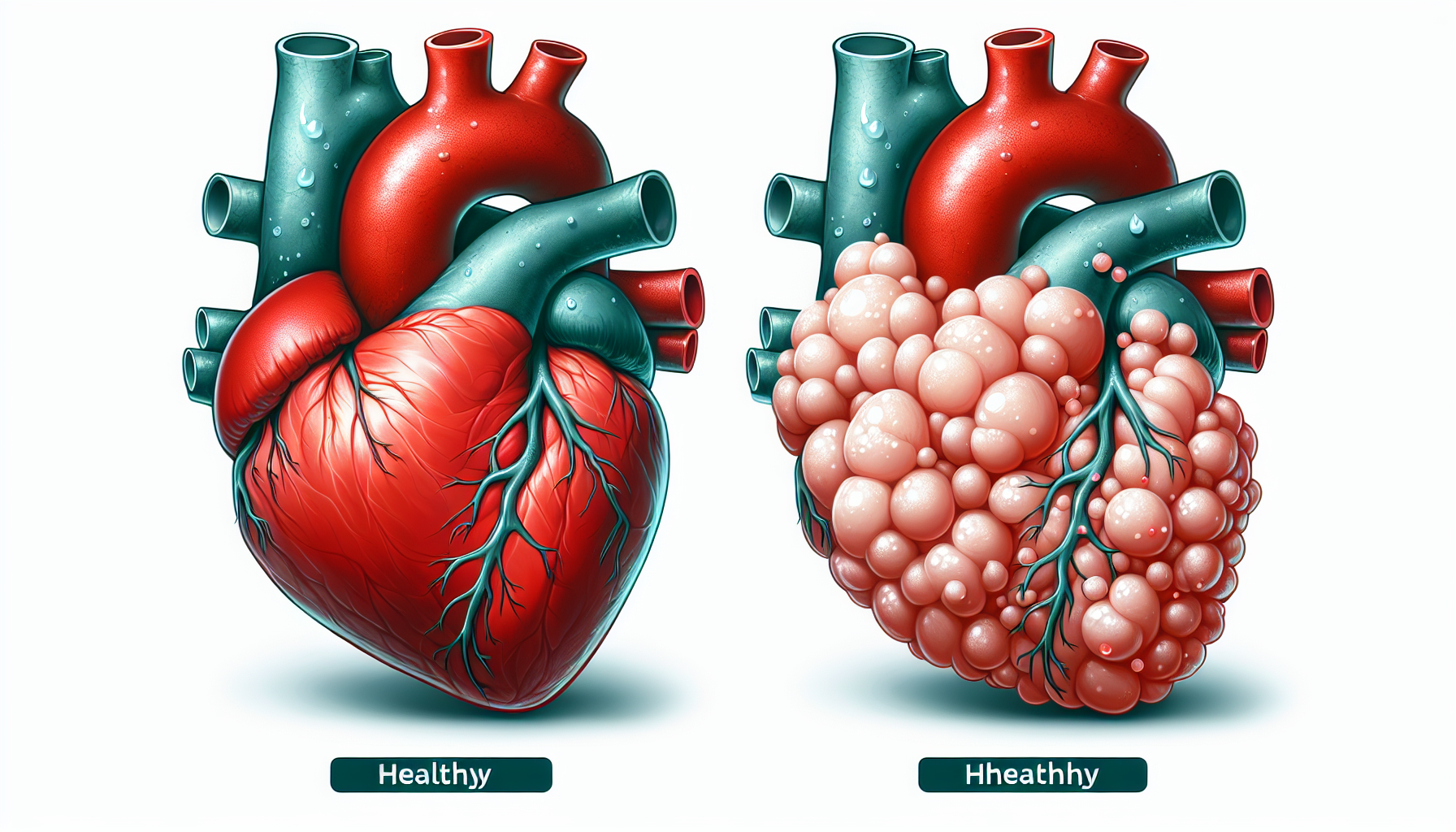Hyperlipidemia is a common health issue faced by millions worldwide, characterized by abnormally high levels of lipids—fats or fatty substances like cholesterol and triglycerides—in the blood. It is a significant risk factor that contributes to the development of cardiovascular diseases, which include conditions such as coronary heart disease, stroke, and peripheral artery disease. Understanding the intricate relationship between hyperlipidemia and cardiovascular health is critical for both the prevention and management of these life-threatening conditions.
What is Hyperlipidemia?
Hyperlipidemia occurs when there are excessive lipid particles circulating in the bloodstream. These particles, including low-density lipoprotein (LDL) cholesterol, often referred to as ‘bad cholesterol’, and triglycerides, can deposit in the walls of arteries, leading to atherosclerosis. Atherosclerosis is the thickening or hardening of the arteries caused by a build-up of plaque, which can restrict or block blood flow to various parts of the body.
High-density lipoprotein (HDL) cholesterol, known as ‘good cholesterol’, plays a protective role by transporting cholesterol away from the arteries to the liver for excretion. An imbalance in these lipid levels, particularly high LDL and low HDL, poses a significant threat to heart health.
The Impact on Cardiovascular Health
The direct consequence of untreated hyperlipidemia is the progression of atherosclerosis. As plaque accumulates, it narrows the arterial space, leading to increased blood pressure and reduced oxygen supply to vital organs. In the heart, this can manifest as angina (chest pain) or myocardial infarction (heart attack) when a plaque ruptures and forms a clot that blocks an artery. Similarly, if a clot obstructs an artery in the brain, it can result in a stroke.
Understanding the full scope of cardiovascular health is crucial when discussing hyperlipidemia. For comprehensive insights into this critical aspect of our well-being, Avix Health’s Cardiovascular Health section provides in-depth information and resources.
Risk Factors and Prevention
Several factors contribute to the development of hyperlipidemia, including genetics, diet, lifestyle, and certain medical conditions. Prevention and management strategies often focus on modifying diet and lifestyle. A heart-healthy diet low in saturated fats and trans fats, regular physical activity, maintaining a healthy weight, and abstaining from smoking are all effective measures to control lipid levels.
It’s also essential to monitor and manage other health conditions that may contribute to hyperlipidemia, such as diabetes and thyroid disorders. Regular health check-ups and blood tests to monitor lipid levels are crucial for early detection and management.
To delve deeper into dietary strategies that can help manage hyperlipidemia, consider reading about the Cardiovascular Benefits of Plant Sterol-Enriched Diets, which highlights the role certain compounds found in plants play in maintaining heart health.
Diagnosis and Treatment
Hyperlipidemia is typically diagnosed through a blood test called a lipid panel, which measures the levels of LDL, HDL, and triglycerides. Depending on the results, healthcare providers may recommend lifestyle changes or medication. Statins are the most commonly prescribed drugs for lowering cholesterol levels, but other medications such as fibrates, niacin, or bile acid sequestrants might also be used depending on the individual’s specific lipid profile.
The Role of Medication & Supplements
Medications are often a critical component of hyperlipidemia management, but they usually work best in conjunction with lifestyle changes. Supplements may also play a role; for instance, omega-3 fatty acids have been found to lower triglyceride levels. For those considering supplements as part of their treatment plan, it’s advisable to consult a healthcare professional and explore Medication & Supplements for a better understanding of their use in managing hyperlipidemia.
Current Research and Future Directions
The scientific community is continuously researching new ways to combat hyperlipidemia and its effects on cardiovascular health. From novel drugs to innovative lifestyle modification programs, the future looks promising for individuals at risk of or currently dealing with hyperlipidemia.
Research into the genetic factors influencing lipid metabolism may lead to more personalized treatment approaches. Moreover, advances in non-invasive procedures for cardiovascular issues offer hope for those with complications arising from hyperlipidemia.
For aspirants of cutting-edge knowledge, reading about Expanding the Understanding of Heart Disease Through Genomic Research can provide insights into the genetic influences on heart disease and potential personalized treatment strategies.
Living with Hyperlipidemia
Living with hyperlipidemia means making ongoing lifestyle adjustments and adhering to treatment plans prescribed by healthcare providers. It requires a commitment to regular health monitoring and openness to adjusting treatment as needed.
Support from family, friends, and support groups can make managing the condition more manageable. Additionally, educating oneself about the condition and its implications on health is vital. Resources like Heart Health Awareness and the Importance of Education can empower individuals to take proactive steps in their health journey.
External Resources for Further Information
For those seeking more information on hyperlipidemia and cardiovascular health, the following resources may prove valuable:
- American Heart Association offers comprehensive information about cholesterol, its types, and the impact on heart health.
- National Lipid Association provides resources for patients and professionals regarding lipid management and research.
- Mayo Clinic delivers an overview of diagnosis and treatment options for high blood cholesterol.
In conclusion, hyperlipidemia is a significant risk factor for cardiovascular diseases, but with proper understanding and management, individuals can lead healthy lives. It is essential to engage in heart-healthy behaviors, seek regular medical advice, and stay informed about new research and advances in the field. Together, these steps can help mitigate the effects of hyperlipidemia on cardiovascular health.



